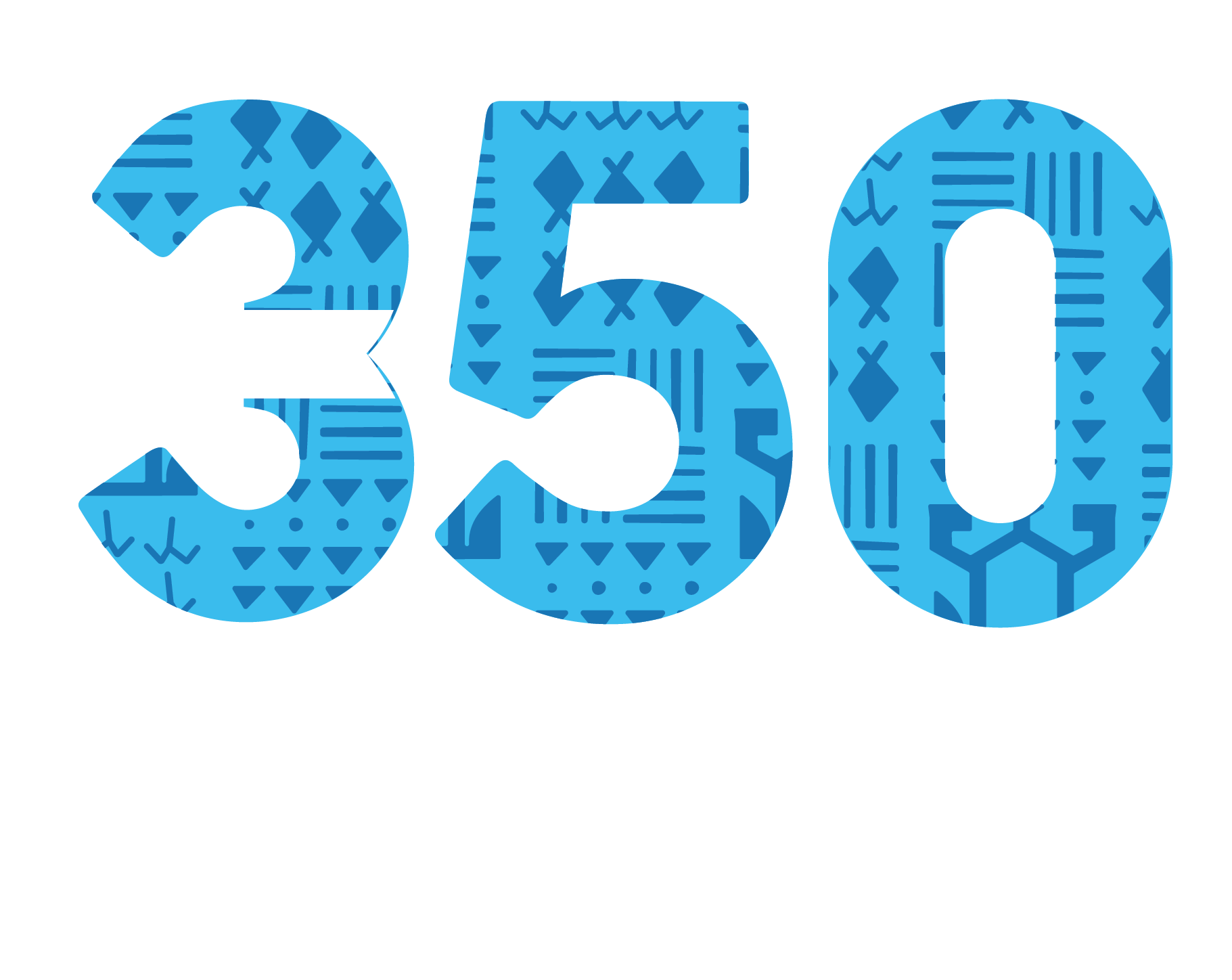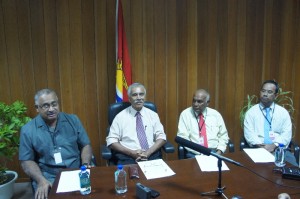I posted my previous blog as the negotiators at the Tarawa Climate Change Conference were busy at work on making a declaration suitably ambiguous so that they could agree to it. The Kiribati Government had made an ambitious tactic of inviting not only the most vulnerable countries, but also some of the big players – like China, Australia, Canada and New Zealand. Eventually all the countries who had sent negotiators signed the resulting ‘Ambo Declaration’[1].
Although things didn’t start so well with the Chinese negotiator. By way of background, the Chinese no longer have a high commission in Kiribati because the Kiribati Government accepted aid from Taiwan. And because China does not recognise Taiwan as a legitimate state, the high commission couldn’t stomach the Taiwanese presence, so they upped and left. So upon arriving the Chinese negotiator became equally uneasy at the site of the Taiwanese investment in Kiribati and so boycotted the official opening and reception of the Conference. When he did speak at the Conference, he started by highlighting how deeply regrettable the Taiwanese presence was, but once that was off his chest, the Chinese got amongst the negotiating.
Most of the most vulnerable countries watched on quietly as the negotiations revealed the deep divisions between the world’s most powerful nations about what shape a legally binding climate agreement should take. The conference didn’t make any progress in that regard, and if anything, it was like a warm up for the kind of disagreements and weak commitments that we can expect from the Cancun negotiations starting in a couple of weeks time. So the world is no closer to reducing greenhouse gas emissions at the scale required to avoid ‘dangerous’ climate change, or to getting us back on path to 350ppm.
However, the Ambo Declaration has drawn timely attention to the special plight of the most vulnerable countries, and the need for fast start climate adaptation finance. You can’t blame the most vulnerable countries for going for the money – they’ll need it for adapting as fast as they can against the impacts of climate change. With a wave of my new camera, I managed to sneak into the press conference given by the Kiribati President Anote Tong, and Ministers from the Marshall Islands, Maldives and Fiji. Speaking to the three legitimate journalists and an imposter, President Tong concluded that “What the Ambo Declaration has said is that adaptation finance is urgent, it’s got to be accessible, we don’t talk about it, we must do it. That is basically the desire of countries on the frontline that are facing the problem”. And indeed, congratulations were in order for what they had pulled off – they pulled together 20-odd countries to a remote and poor nation, and got them to agree with them.
But I couldn’t help walking out of that press conference with a funny taste in my mouth. Or maybe it was just the acrid smell of some young boy urinating on the street outside the Parliament. After some reflecting on the whole thing, I realized that it wasn’t only the smell of urine that was affecting me, but it was also that I couldn’t help but feel like the Ambo declaration is a bit of a sell out – they’ve gone for what the big economies are willing to do – to shell out some more aid money – rather than reducing emissions to prevent the dangerous climate change. I really hope that I’m wrong, and that come the Cancun negotiations the most vulnerable countries will stand strong not only for the adaptation funding, but for the targets that we need to get the planet back to a safe climate – 350ppm. Because the reality is that no amount of adaptation money can save or safeguard against the loss of homelands and cultures from the scale of climate change that we can expect – unless developed countries rapidly reduce emissions (for an overview of the emission reduction pathways required to get back to 350ppm, have a look at the recent report “Not Just a Number”).
A couple of days after the conclusion of the conference, I went over to one of the near by coral atolls, Abaiang with Claire Anterea (local 350 organiser) and Brian Reed (a reporter from National Public Radio in the US). With no power (except for generator power for the school), and 10,000 residents spread along a long and wonderfully narrow strip of land, this place is remote. But once you’re there, it doesn’t feel remote – it just had a calm and peaceful feel, with a sense that the people have been here for a long time. However, after talking to many of the locals, it became evident that things are starting to change. They showed me how their coconuts are getting smaller (due to salinisation), and some of the coconut trees are dying from the heat and drought. That is really bad news because coconuts are one of the foundations of their subsistence lifestyles. In some parts of Abaiang, the impacts from sea-level rise is becoming visible. I had kind of thought that sea-level rise wasn't really being felt just yet, but there's a place where half of the village had to relocate as their land and huts became inundated with seawater at the full-tide.
It’s these impacts that are pushing more people away from the outer atolls like Abaiang (along with other push and pull factors like employment), and into the already overpopulated South Tarawa, or in many cases, they dream of moving to New Zealand. The young family that we stayed with (Tekaai & Merekita, both 28 and school teachers) are hoping that they will be accepted into New Zealand, firstly to give their children a better education, and secondly because they are worried that soon they will not have land to live on because of climate change. I found that tough to stomach, when they live the simplest and most humble of lifestyles, but they're the ones having to deal with the impacts of our collective incapacity to reduce emissions. I really wished there was something more I could do – other than offer them a place to stay if they get accepted into New Zealand. The real work that we have to do though is do the hard work of reducing emissions, and doing that fast. We need all hands on deck as we'll continue with some big pushes in the coming year with 350.org, so please stay in touch! And with that, I’m signing out from my Kiribati adventure – on my way home via Fiji for a couple of nights.
If you have any questions or ideas, feel free to throw me some lines – aaron@350.org
Oh and finally, I helped get Claire and Pelenise set up on Twitter – so you can keep up to date on what is happening in Kiribati with the Kiribati Climate Action Network – follow them @KiribatiCAN
And thanks for reading!
[1] The signatories to the Ambo Declaration are Australia, Brazil, Canada, China, Cuba, Fiji, India, Japan, Kiribati, Maldives, Marshall Islands, New Zealand, Samoa, Solomon Islands, and Tonga.

